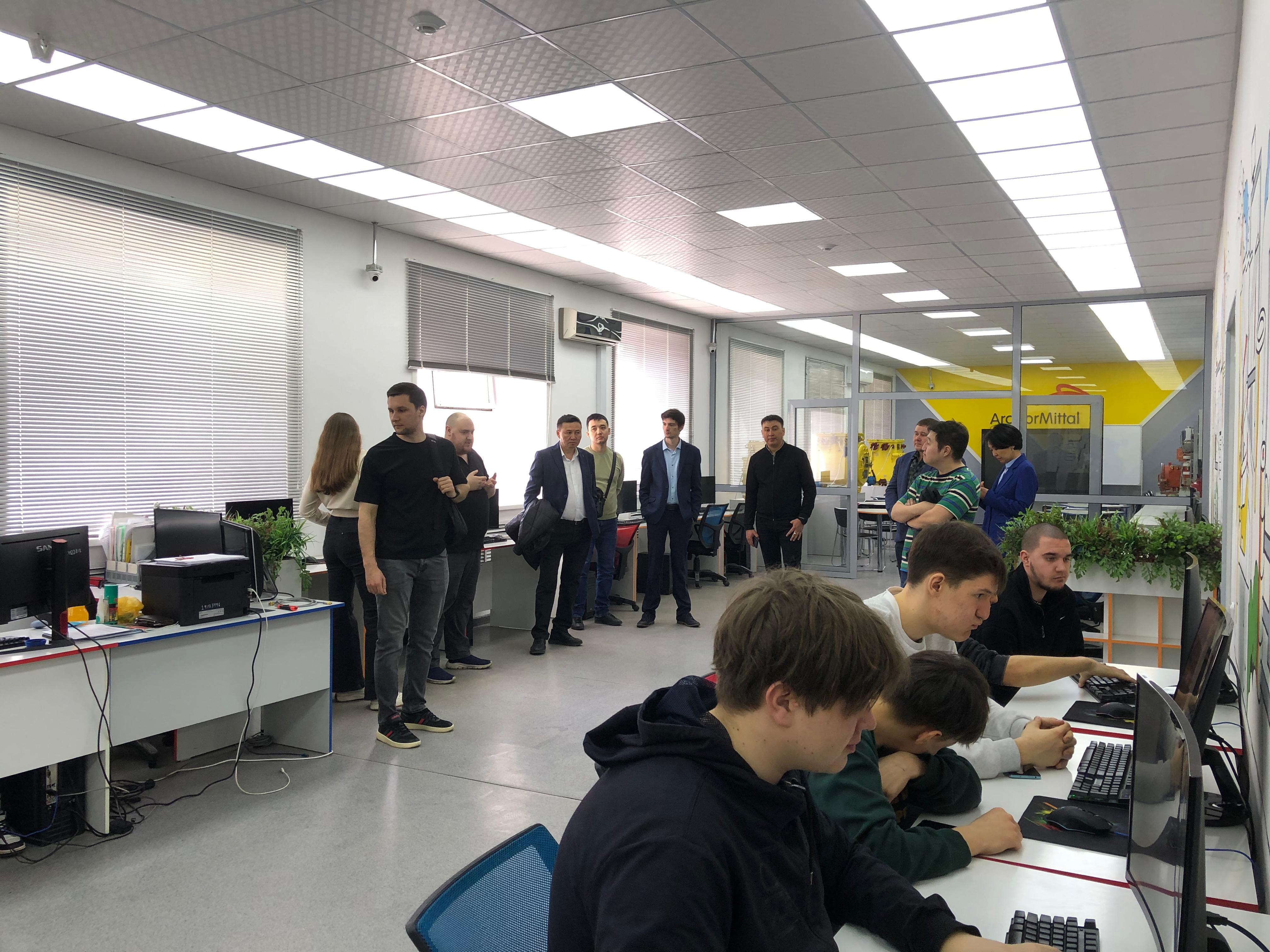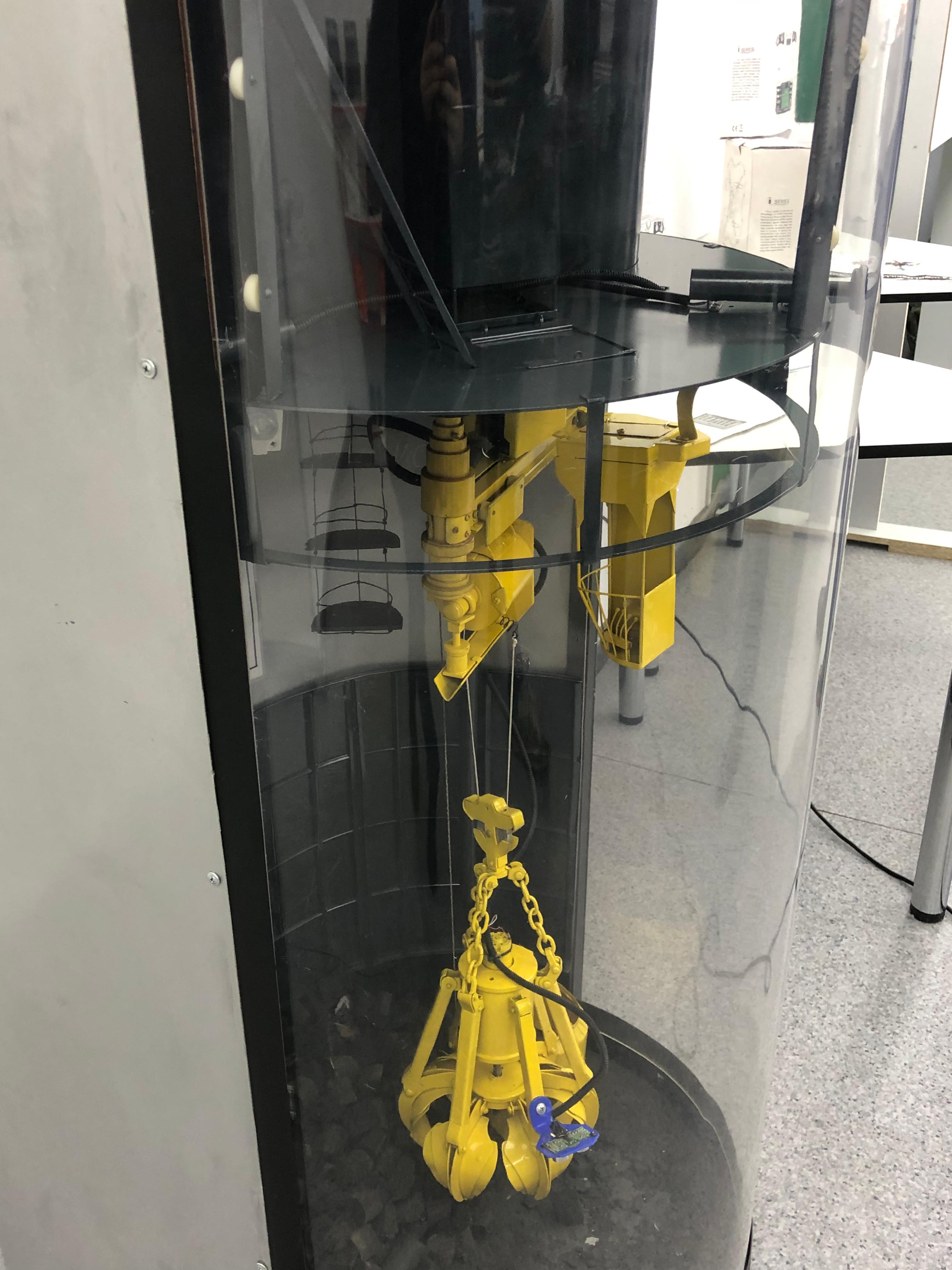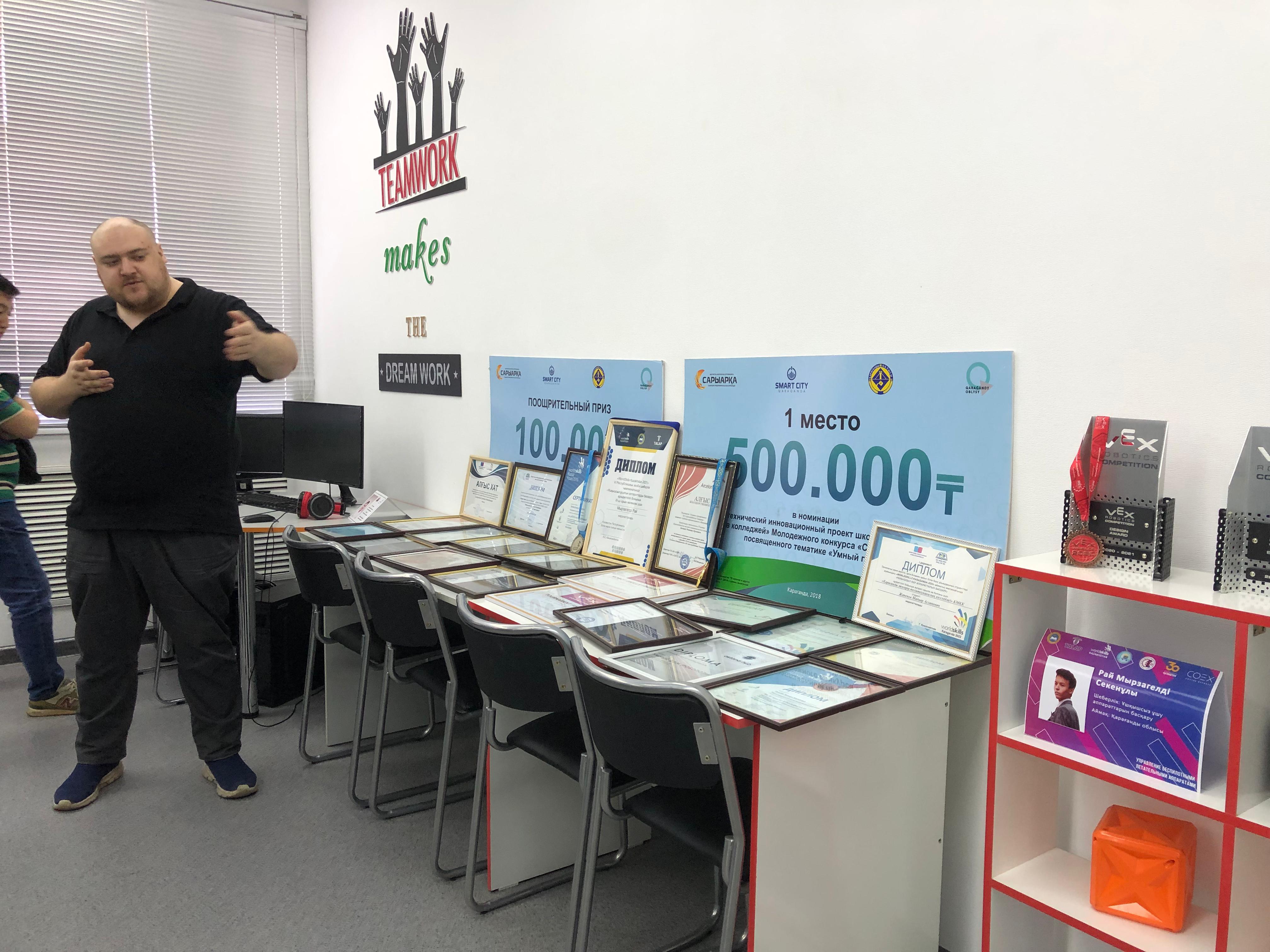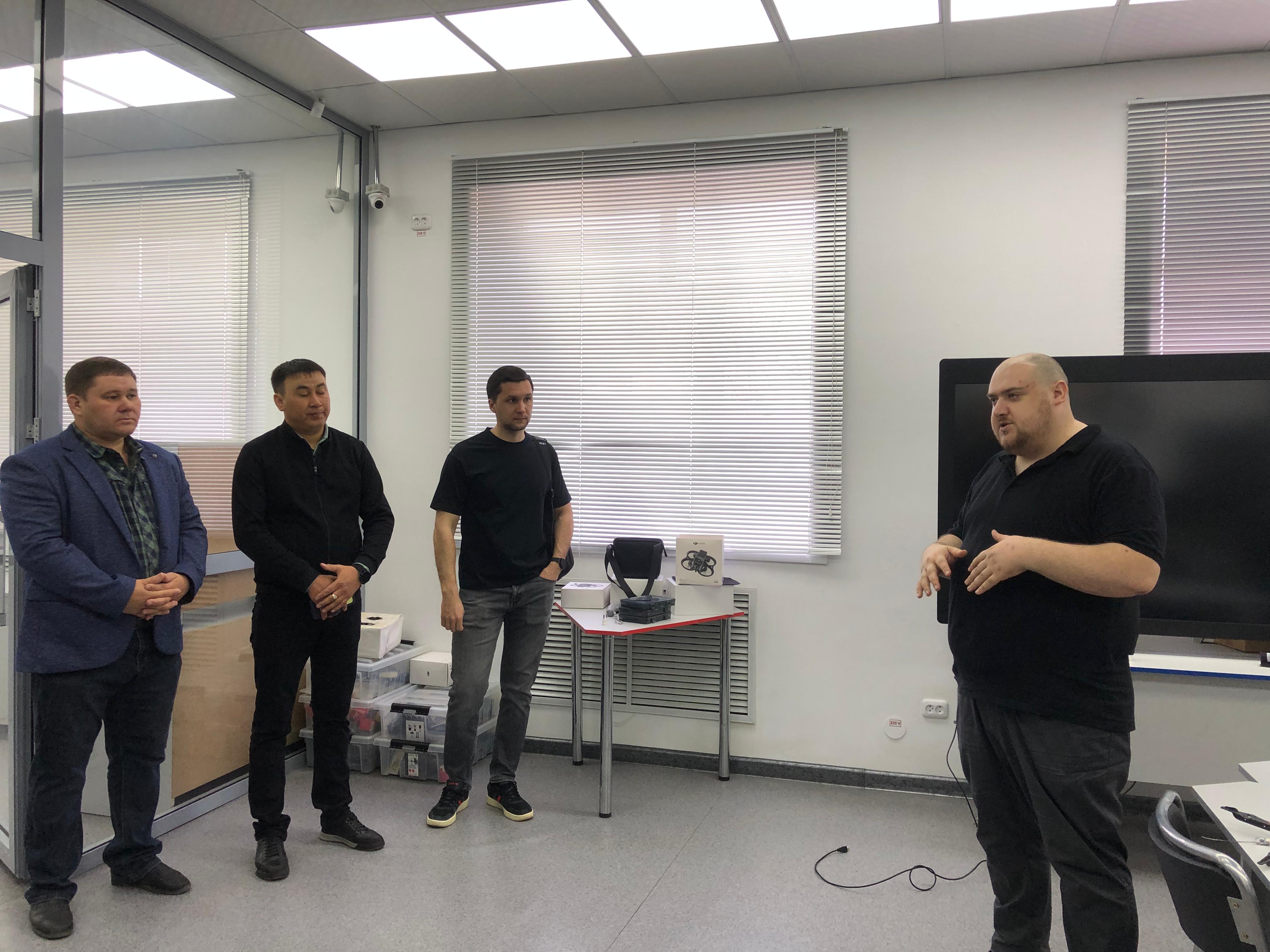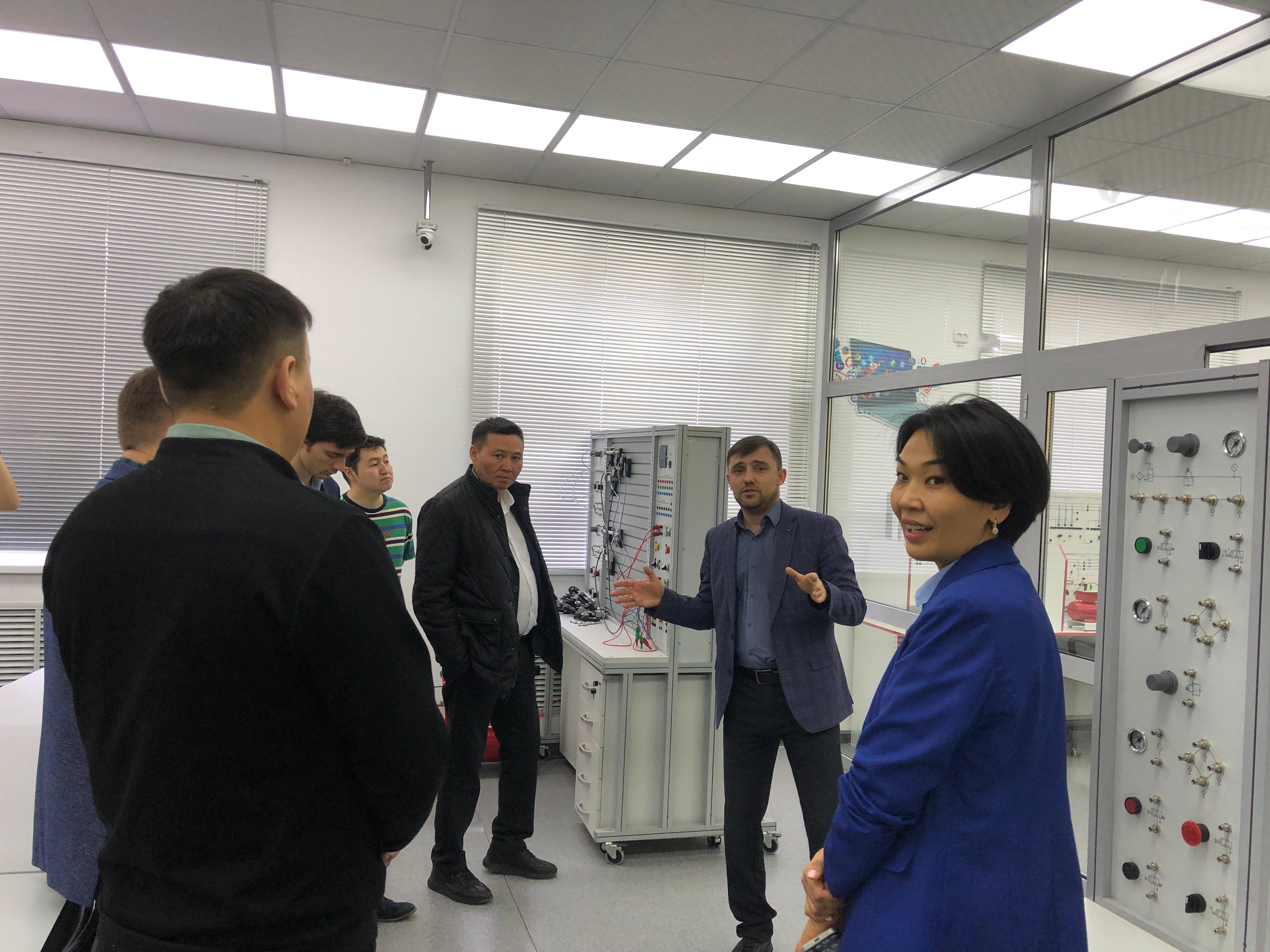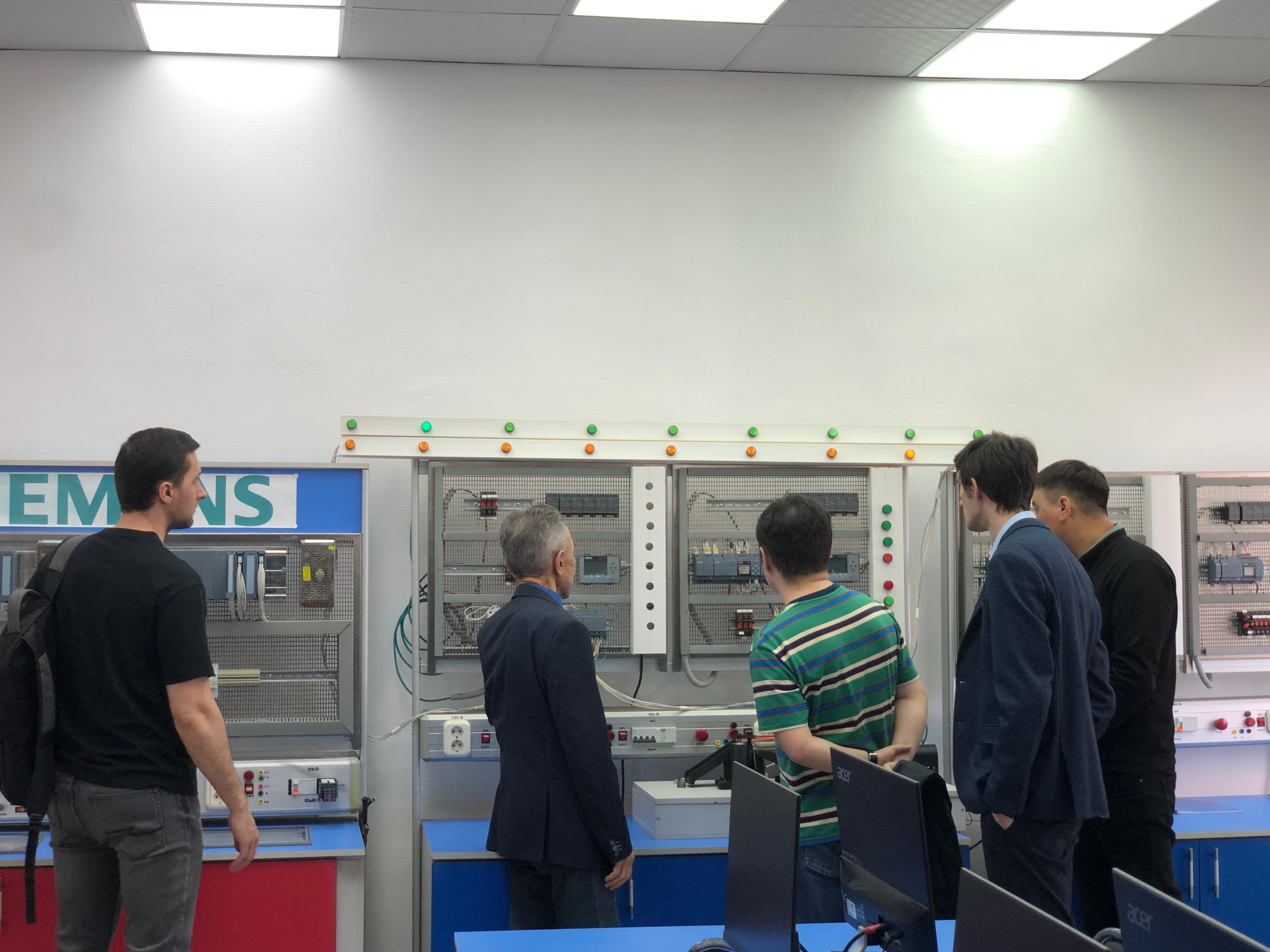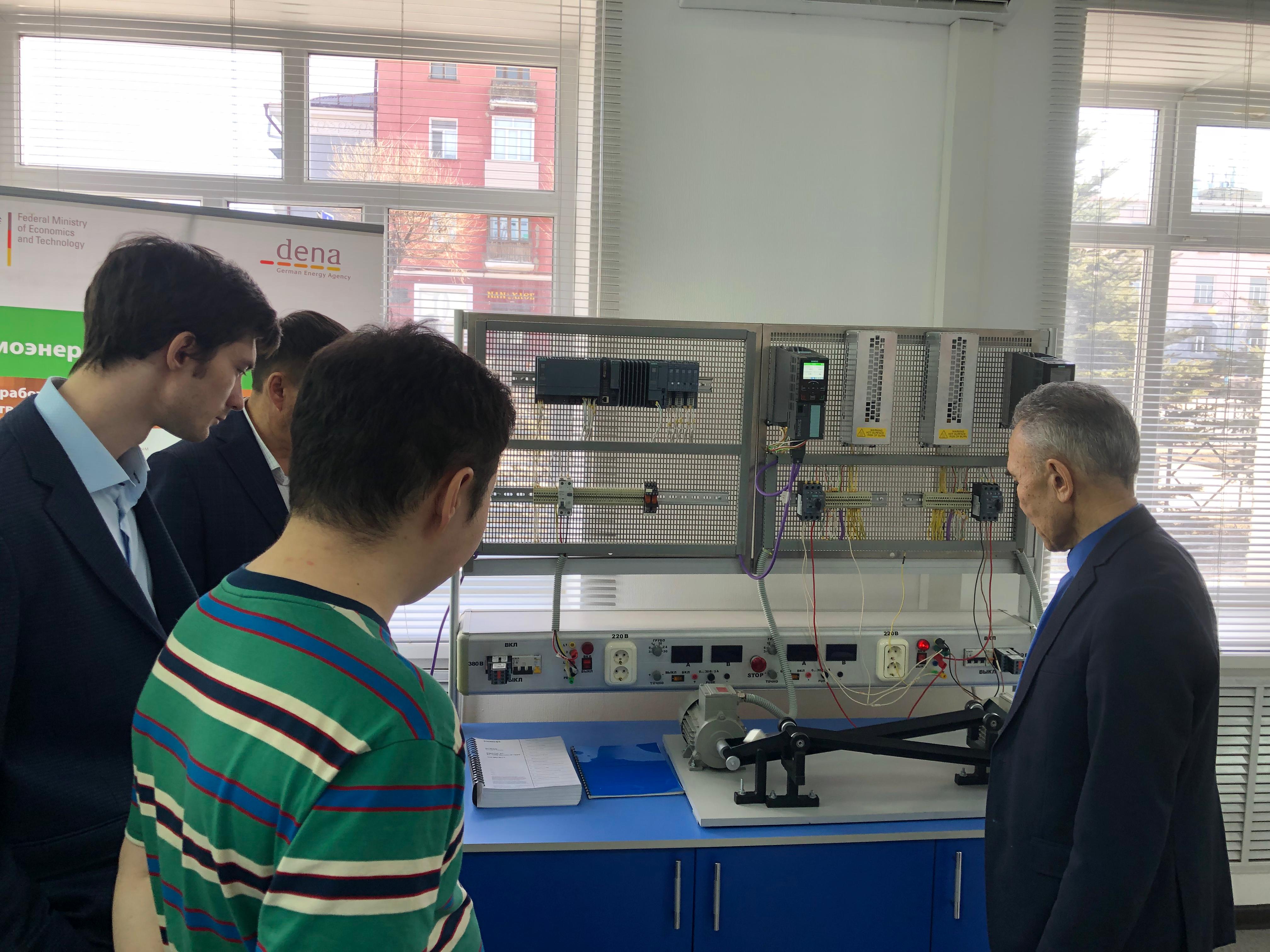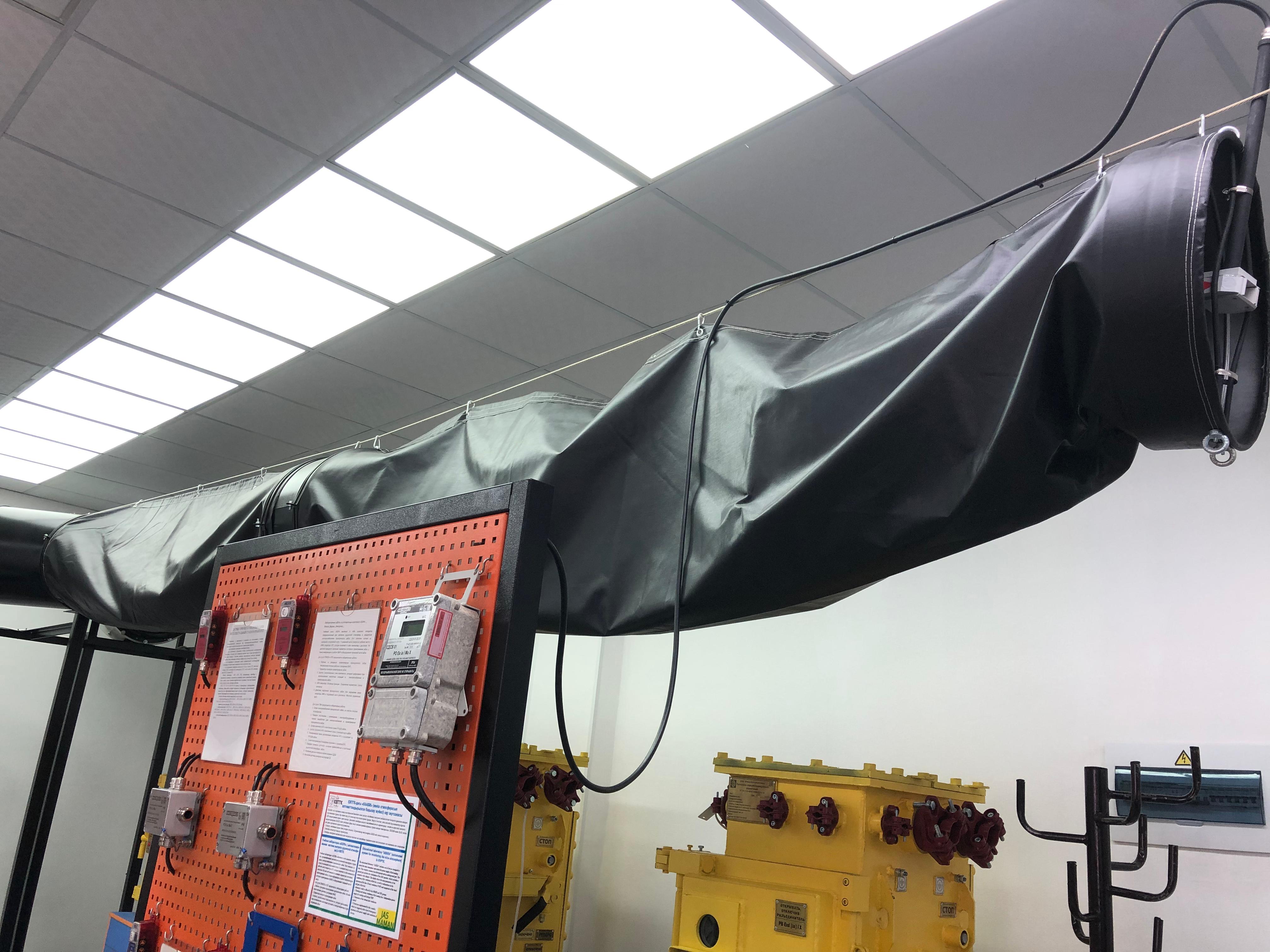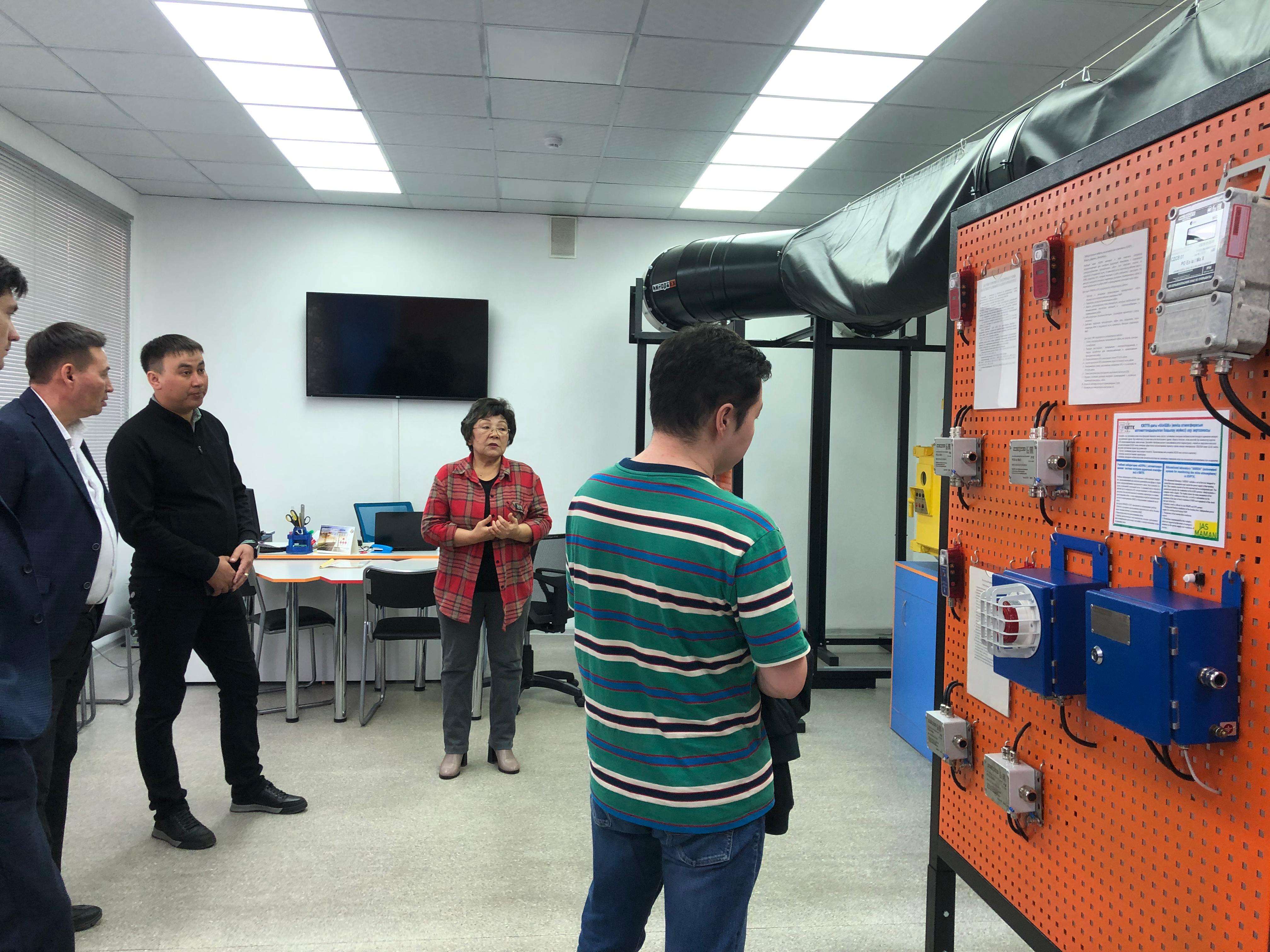News Kazakhstan10.04.2024
GIZ and RES School: training specialists for the energy transition in Karaganda
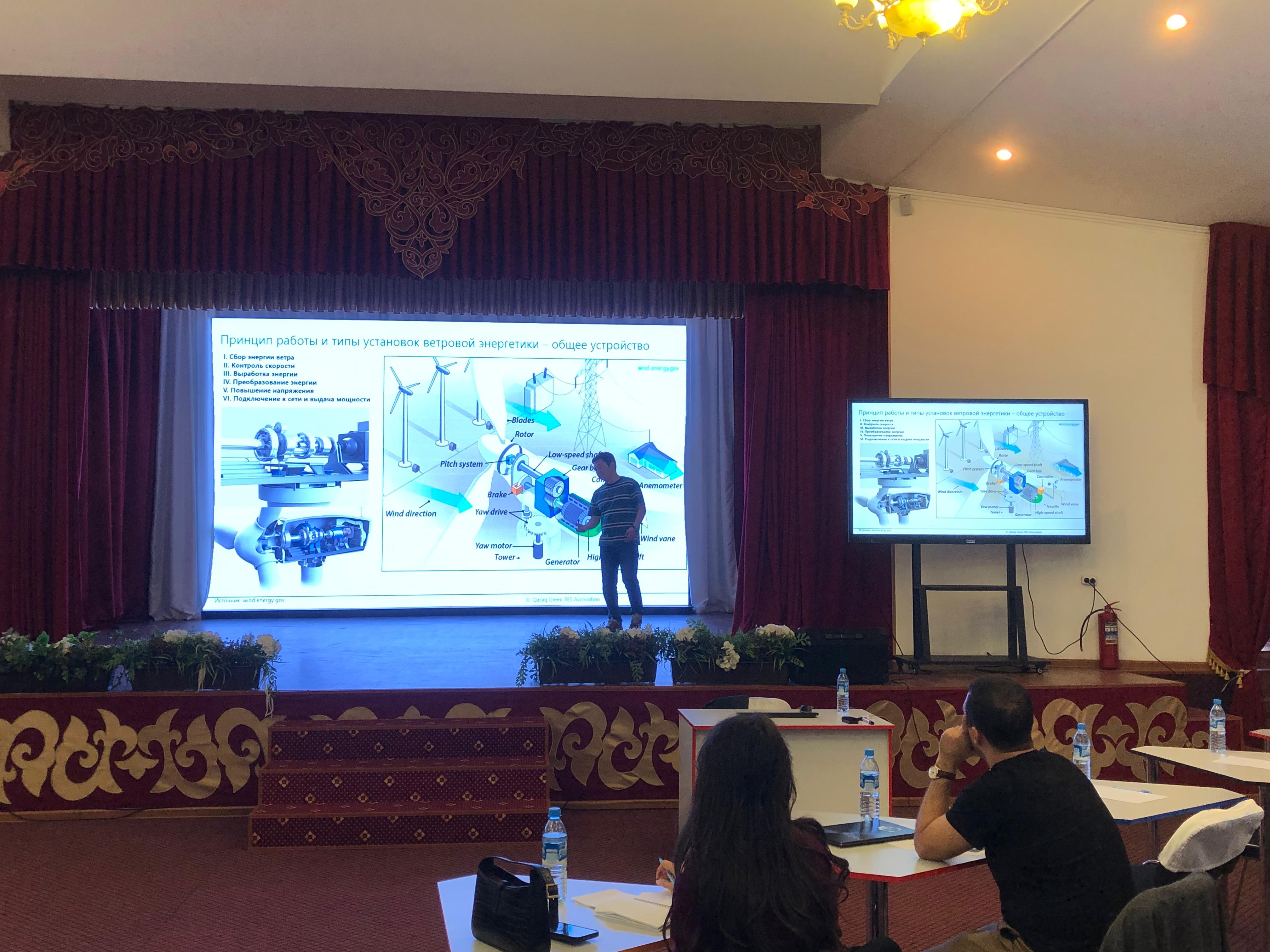
QAZAQ GREEN. Karaganda hosted short-term training courses of the Renewable Energy Sources School (RES), established in May of last year on the basis of the Qazaq Green Association. The goal of the courses is to transfer new skills and competencies necessary for work in the field of renewable energy to the participants.
The German Society for International Cooperation (GIZ) in Kazakhstan plays an important role in the implementation of this initiative. Within the framework of its project "Capacity Development for Climate Policy in South-East and Eastern Europe, the South Caucasus and Central Asia" (CDCP III), GIZ supports Kazakhstan in preparing for the energy transition. The Republic is gradually increasing the share of electricity generated by renewable energy sources, setting a target of 15% by 2030. In this regard, the demand for renewable energy has become noticeable lately, and its potential is becoming increasingly significant.
In the next 20 years, short-term training courses on this subject will become critically important for the industry. Therefore, even those graduates who recently graduated from universities and colleges will need to update their knowledge in the workplace. And for this, they will need continuous professional development courses.
Moreover, these short-term courses can cater to both newcomers and seasoned professionals in the renewable energy field seeking to enhance their expertise. For instance, attendees at the Karaganda training included educators from educational institutions, as well as representatives from energy and other corporate entities.
GIZ emphasized that the project aligns with Kazakhstan's commitments to transition to a low-carbon economy and achieve climate neutrality by 2060.
"The global trend towards decarbonizing the world economy is already evident. Kazakhstan has the potential to emerge as a significant player in the global market for clean energy and low-carbon products. Understanding which business models will enable the Kazakh industry to adapt to new global requirements and derive benefits from them is essential. This transition will necessitate substantial investments, including in specialist training. In the long run, the Kazakh economy stands to gain from the energy transition and the associated modernization. The GIZ project aims to facilitate dialogue on decarbonization among various stakeholders and facilitate the transfer of knowledge and international experience," stated GIZ.
Among those who attended the training was Aigul Orazbayeva, Head of the Department of Energy Disciplines at the Karaganda Higher Polytechnic College. During the training, the teachers told the participants about the prospects for the development of renewable energy.
Aigul Orazbayeva noted the importance of obtaining comprehensive information on renewable energy for teachers who graduate specialists in renewable energy sources.
"We have a specialty "technicians-power engineers of renewable energy" and this specialty was opened in 2021. Next year will be the first graduation. The guys who came in the first set are already in their third year. For all of us, as a college, department and teachers, it is very important to understand how the development is going on now, where we can send the guys for practice and how much we can help them get a job later. Therefore, in this sense, the course was very useful, because for us, as teachers, some things, like financing, were for the first time. Of course, everything was very useful," she said.
In 2021, the Karaganda Higher Polytechnic College admitted the first two groups of students in the specialty "technicians-power engineers" in the field of renewable energy with training in the Kazakh and Russian languages. In 2025, these 35 students will graduate. In 2022 and 2023, the college conducted two more student admissions for this specialty.
"Right now we are already finding practice bases for them, since the QazaqGreen association includes all the players who participate in green energy in Kazakhstan. These are investors, those who build, those who deliver these panels, and everyone, everyone, everyone. For us, this networking is very important to conclude some contracts, to help our guys get a job in the future. For teachers, of course, all the information on the development of renewable energy in Kazakhstan was useful," Orazbayeva noted.
During the training, the participants studied both the Kazakh and international experience of renewable energy development. The head of the college department and her colleagues also received extensive information, so that they could then use it in teaching methods, conveying the knowledge gained to their students.
The first year of college for students is general education. In the second year, students become familiar with the operation of electrical equipment, stations, substations, and enterprises. Later, students begin to intern at renewable energy companies, where they learn about energy generation technology. They are taught by masters who have studied renewable energy projects.
The Karaganda Higher Polytechnic College is a member of the QazaqGreen Association. Last year, during networking in Borovoye, the college's teachers met with many entrepreneurs who are developing renewable energy in Kazakhstan. Interestingly, one student, before graduating from college, started working at one of the renewable energy companies and took part in the commissioning of a solar power plant in the Aktobe region.
Artem Slesarenko, the founder of Profland, a partner of renewable energy companies, believes that the training provides the latest up-to-date information on the development of the sector.
"What is useful in the Renewable Energy School for students? The latest information, maximally concentrated and maximally capacious. For example, we sent a team of four people because the training covered information about the market. Also, our technical specialists also looked at various other sectors, i.e. they looked at solar and wind energy. The renewable energy market in Kazakhstan is considered from different sides: from the technical and economic sides," he said.
According to him, the training instructors showed the participants a high level of expertise, providing interesting and necessary information for a comprehensive understanding of the renewable energy market. In addition, Slesarenko believes that since the training was off-site, in the future it would be possible to demonstrate operating renewable energy installations to the participants. Thus, they would be able to see on-site the operation of renewable energy in detail in real time.
Kazakhstan and UAE reaffirm strategic energy partnership with 1 GW wind project
Solar becomes EU’s top power source for the first time ever
How decentralised renewables transform healthcare services in rural Zimbabwe
Chinese company to build solar and wind power plants in Kyrgyzstan
Seaturns raises €2.45 million to industrialize wave energy technology and accelerate global rollout
Trump signs executive order to end subsidies for wind and solar energy
Uzbekistan's solar and wind power plants generate 5 Billion kWh since beginning of the year
Green Corridor Alliance JV registered in Baku to promote green energy development in Central Asia and the South Caucasus
In the EU renewable energy supply grew by 3.4% in 2024
IRENA accepting renewable energy project proposals in Central Asia until August 15
Astana to host Electronica Expo Kazakhstan Electronics Exhibition
WB gives rundown of Azerbaijan's green energy grid volume prospects
US solar sets new records as renewables nearly match natural gas – EIA
‘Wings’ on poles: Bill Gates-backed breakthrough wind turbine facility breaks ground
Perovskite tandem solar cell achieves new efficiency record
Kazakhstan and China endorse draft SCO joint statement on sustainable energy development
Innovative research on organic solar cells for space applications
Kazakhstan and Uzbekistan drive green energy progress in Central Asia
KazMunayGas launches pilot green hydrogen project in Atyrau
How private homeowners in Kazakhstan can make money from solar panels












